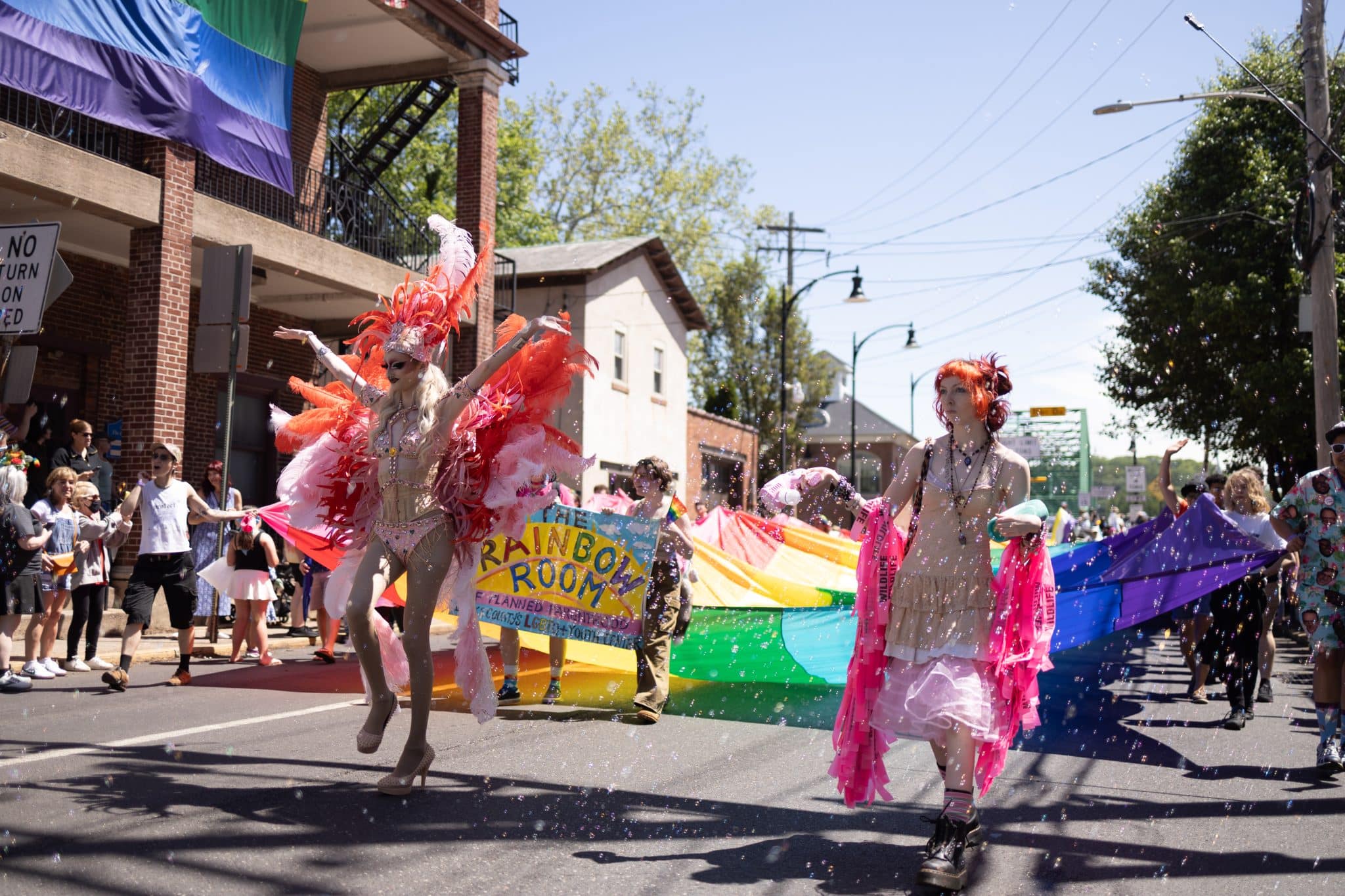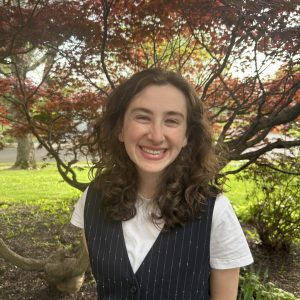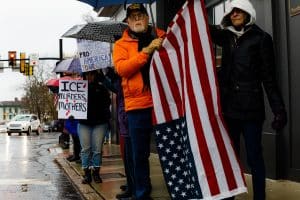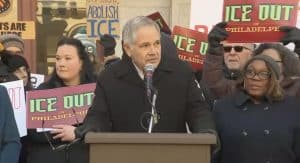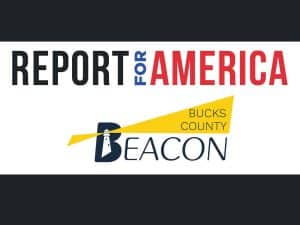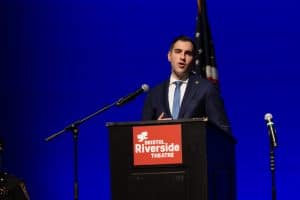New Hope and Lambertville know well what LGBTQ+ Pride means: history, art, rights, and resilience.
At the New Hope Pride Parade on Saturday, Bridge Street looked different than it usually does. Spectators packed onto balconies, drag queens rode in convertibles waving to attendees, and rainbows in every form colored the little towns’ landscapes. Everyone from children in strollers to senior citizens to burger shop workers celebrated the Pride Parade as it travelled down Lambertville and New Hope’s streets.
New Hope has hosted the parade since 2003, with an average of 15,000 attendees each year. The parade began at Lambertville City Hall, where New Jersey’s first same sex marriages were performed. It then strode over the sparkling Delaware River, and danced down New Hope’s Main Street.
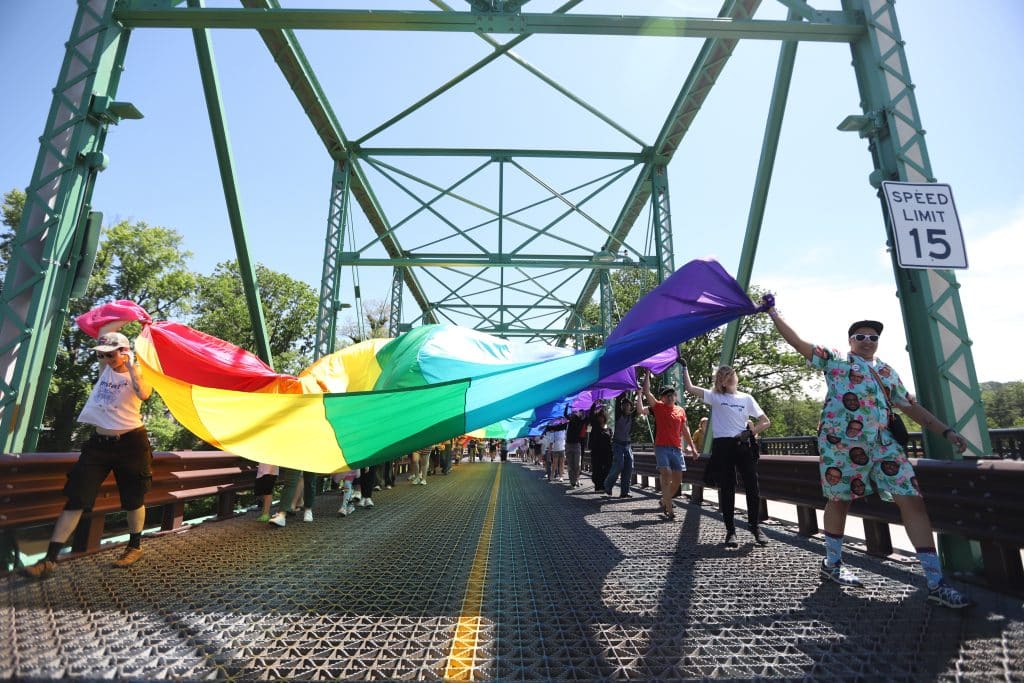
Parade participants Chet Kabara, 70, and Frank Mahood, 86, have been married 12 years and been together for 42, both having a rich history of LGBTQ+ advocacy. They fought for gay marriage in New Jersey by attending meetings to tell their stories, they travelled to the White House to protest about AIDS, and they helped found the first gay organization in Princeton, Gay People Princeton, back in 1972. Mahood started marching in 1973, around the time when sodomy laws, which discriminated against LGBTQ+ people, were slowly being repealed.
“Originally when I started marching, it was a protest. We never called it a parade back then, because we were fighting for our rights,” Mahood said, who also volunteers at the Bayard Rustin Center for Social Justice, which sponsors Princeton’s Pride Parade. “Near that point, we were still considered mentally ill and were still illegal in the state of New Jersey by the penal code.”
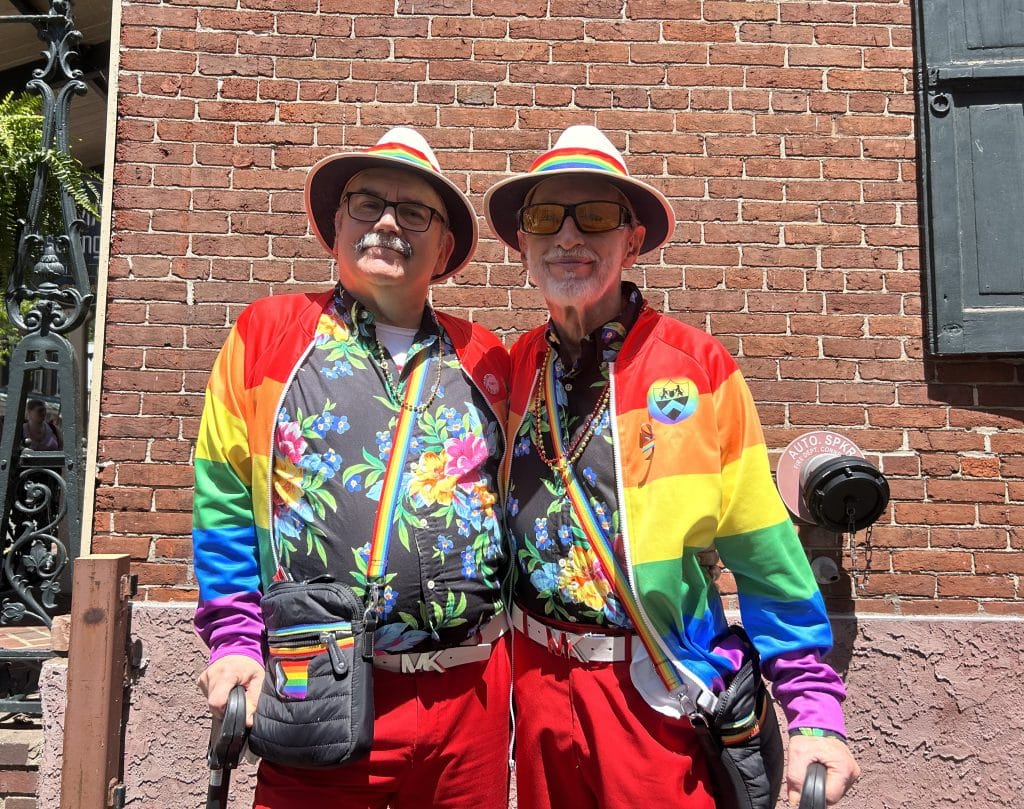
Despite a life of advocacy which reaped essential rights, Kabara still sees danger in the potential rolling back of essential LGBTQ+ protections. There have been many proposed bills in the PA state legislature targeting the LGBTQ+ community, including a near replica of Florida’s “Don’t Say Gay Bill,” school sports bans, and the re-definition of gender. Kabara views the current political situation as a “turning point.”
“Gay people are more accepted now than they have ever been, and the government is cracking down more on us than they have in years,” Kabara said. “Now, if they want to turn back our marriage, good luck.”
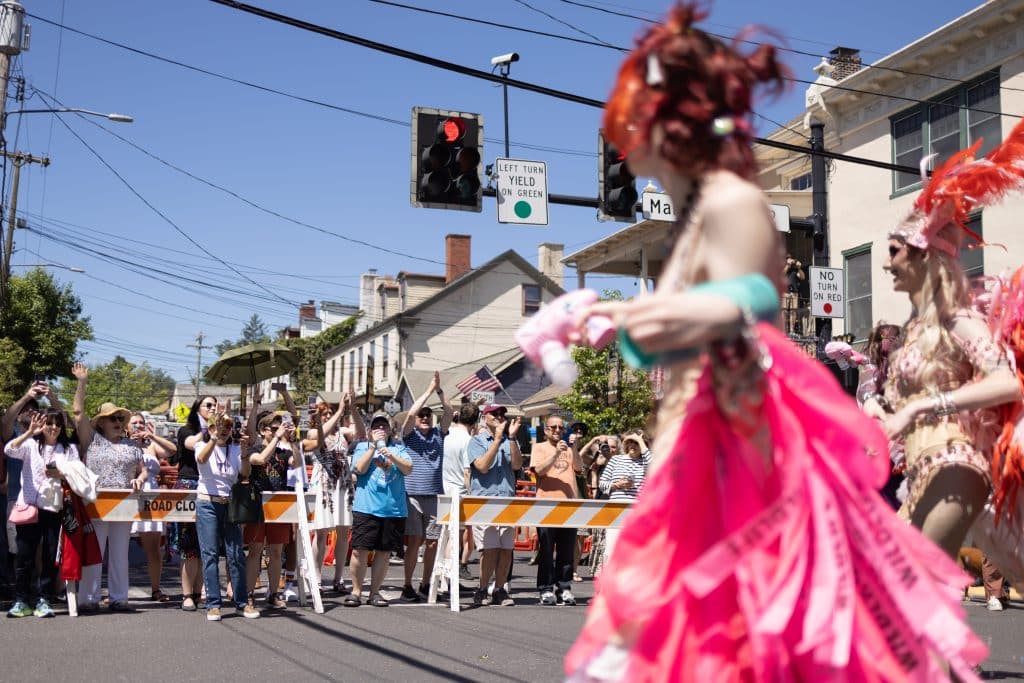
Kabara also pointed out that LGBTQ+ people will not be the only target in a rollback of rights–family members and friends, he believes, will not accept their loved ones being discriminated against. Mahood said his family “will not go back.”
“I was always closeted with my family when I was young. When we got married, my whole straight family came,” Mahood said. “That kind of acceptance isn’t going to go away, even though they are all staunch Republicans.”
Walking with the cast of the Bucks County Playhouse’s Apple Boys, a prominent actress also partook in the parade: Emily Skeggs. In 2015, Skeggs starred in broadway’s Fun Home–a Tony Award-winning musical based on Alison Bechdel’s graphic novel, which dealt with common LGBTQ+ struggles.
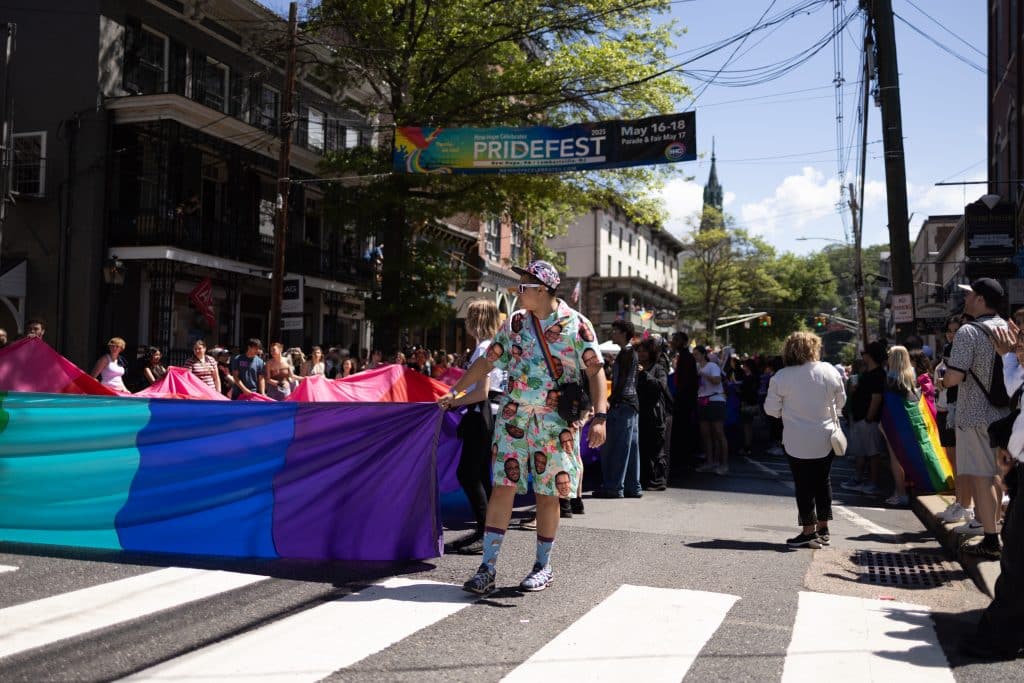
“Fun Home being the first thing that I ever did really anchored my work in activism,” Skeggs said. “Along with the job comes this beautiful thing that I not only get to experience, like these large prideful community events, but people also share with me their personal experiences about being queer and about having a family or having a queer family member.”
Since being in Fun Home, Skeggs has acted in many queer-related shows, including Apple Boys, which has queer elements. For Skeggs, being an actress also means being an artist, and being an artist, for her, means being an activist.
“Artists are resilient people. We struggle even at the most successful of times, and fighting back is at the core of being an artist, I personally think,” Skeggs said. “So I think it’s tough times, but there’s also a beautiful opportunity for us to come together and to speak our minds and to be heard.”
For Lambertville Mayor Andrew Nowick, LGBTQ+ Pride and activism takes form in guaranteeing legal rights. Nowick and his husband were married legally 20 years ago, and had been able to adopt three children when they were first together.
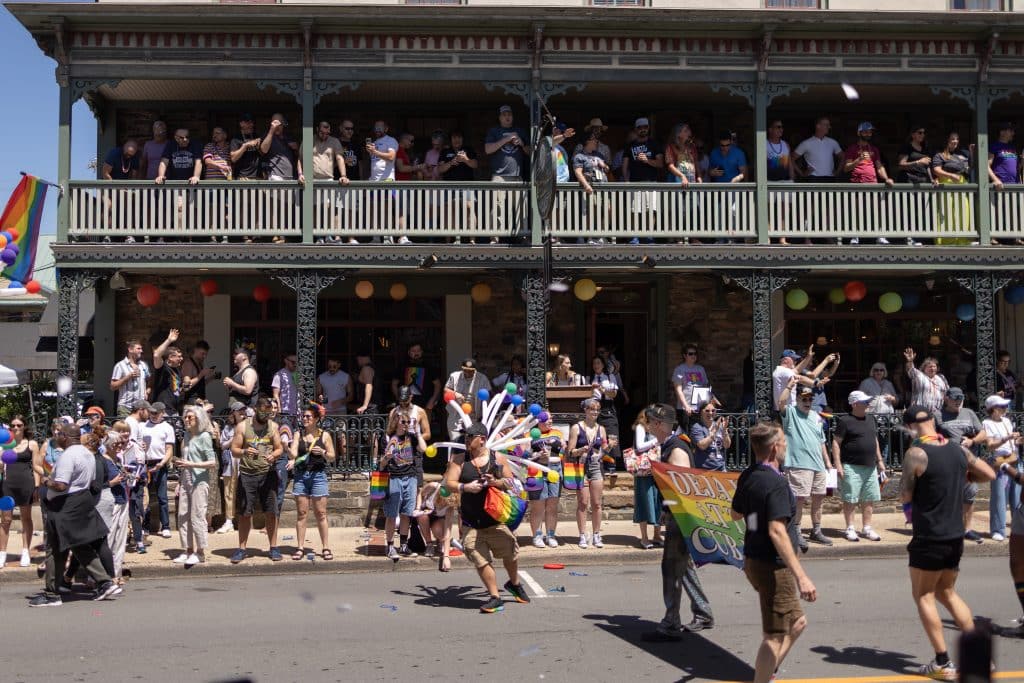
“There were, I think, 38 states where you couldn’t adopt. Now you can adopt in every single state if you’re a same-sex couple,” Nowick said. “It means getting married, having children, everything from filing taxes to feeling open and comfortable running for an elected position in a small town.”
Nowick’s first Pride Parade was in 1984, and he has witnessed LGBTQ+ rights expand through the years. Despite the federal and state governments’ actions, he does not believe the country will face drastic regression.
“I know that there are challenges, but as they say, the horse is out of the barn, and I think that our rights are not going to be denied,” Nowick said. “We’re not going to go back.”
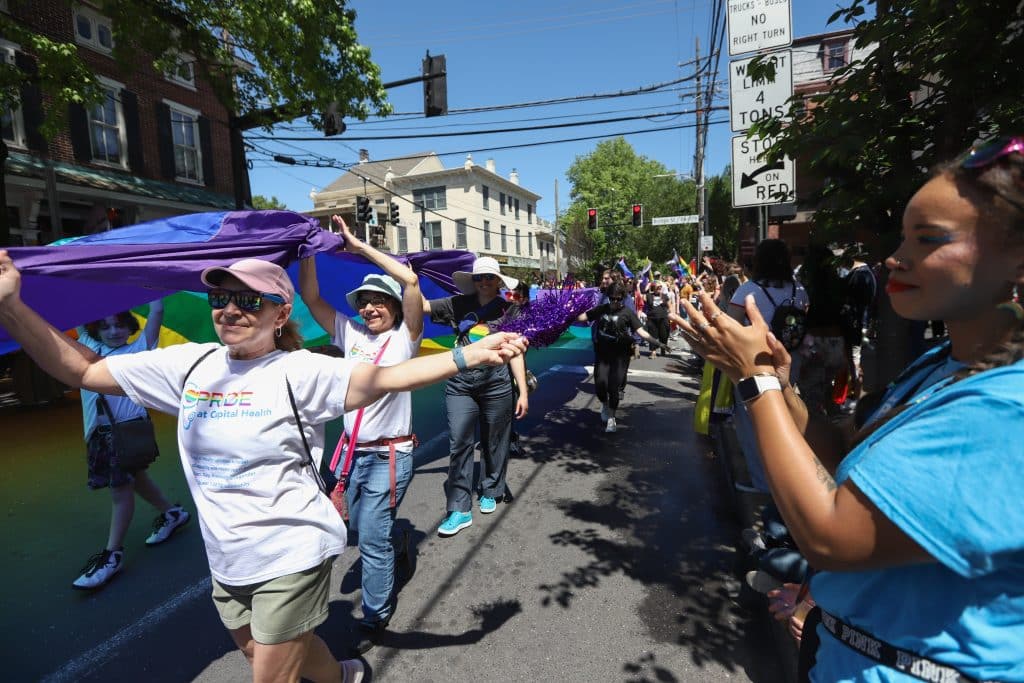
During her 1970’s Manhattan childhood, attendee Rose Ritts, a current resident of New Hope and parent of a queer child, said it was normal to have gender fluidity in the older generation. Ritts grew up with queer people all around her, and said nobody discriminated.
“Nobody worried about anybody’s gender expression or any other thing about them,” Ritts said. “I always knew New York was that way, but the rest of the country wasn’t. Now, there’s more places in the U.S. where a queer person can feel safe. Hopefully it will stay that way.”
Shannon Colestock, a resident of Collingswood, emphasized that queer rights encompass essential American ideals. He believes, currently, most people are focused on aligning with their political party instead of recognizing the most glaring issue.
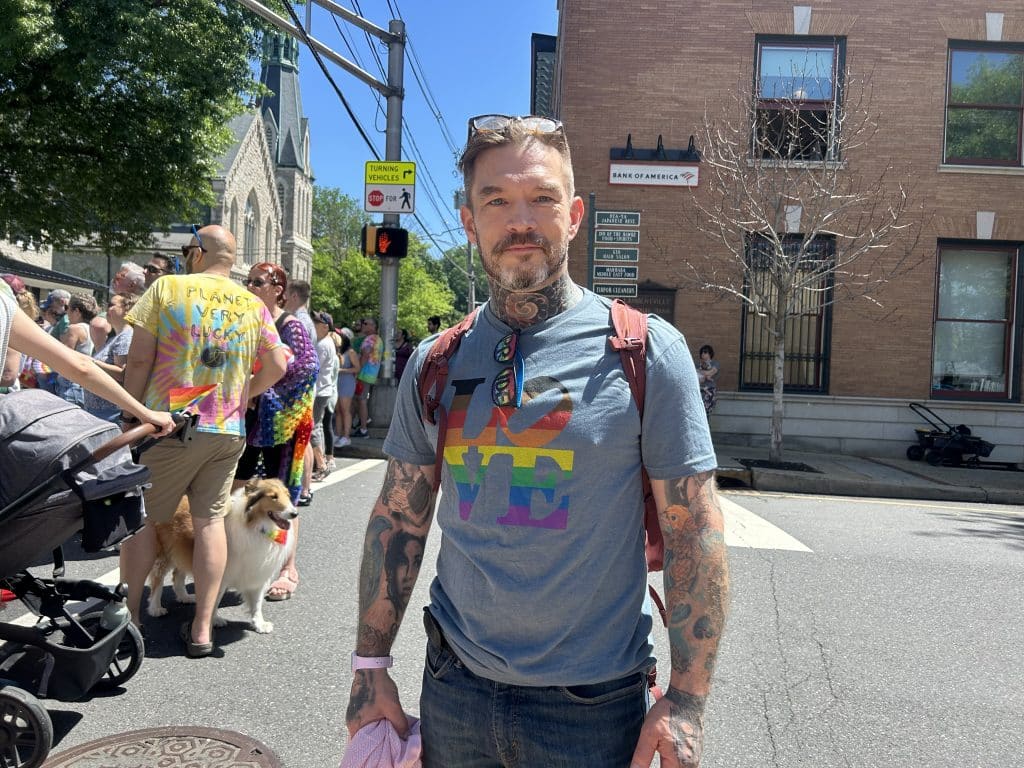
“We live in this great country with a lot of freedoms and I think everybody has the right to life, liberty, and the pursuit of happiness,” Colestock said. “But it’s really like, if we’re losing our rights, it’s everyone’s rights in America.”
Colestock said he believes tons of people’s rights are being taken away slowly, and moving from the discrimination of minorities to the wider population is a slippery slope.
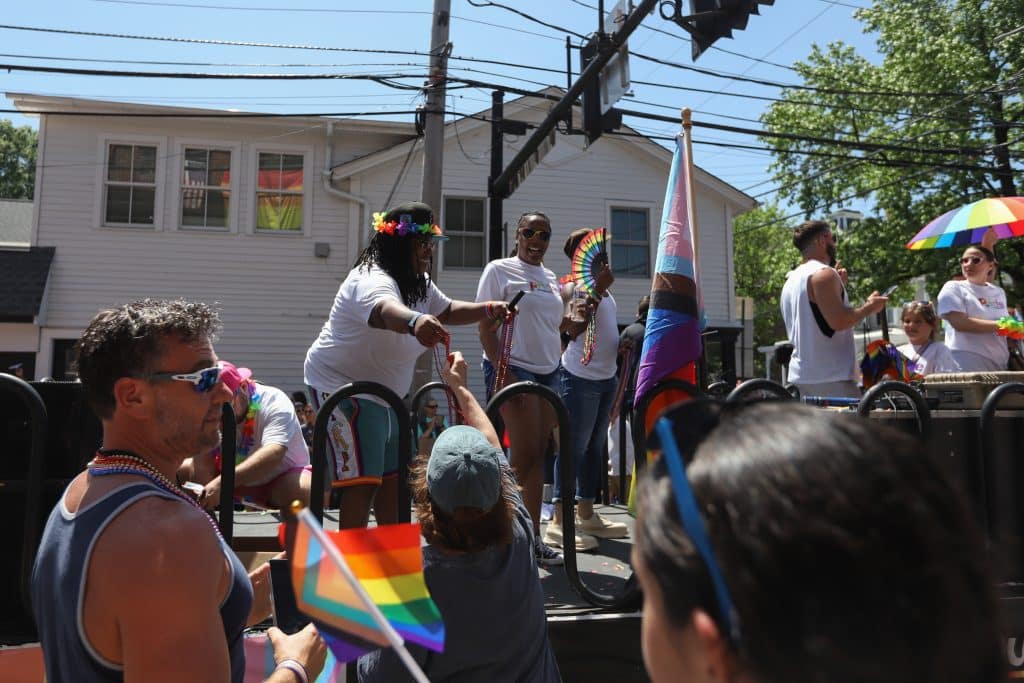
“They start with vulnerable populations, whether it’s migrants or immigrants or gay and lesbian population or some marginalized people,” Colestock. “They start with that and then people say it’s okay because it’s them. Next thing you know, it’s everyone.”
Addressing legal rights, Angela Giampolo, of Giampolo Law Group, set up shop at the Pride Fair. Under her tent, she disseminates information regarding how LGBTQ+ people can navigate the legal system, and also answers legal questions. Over the summer, Giampolo will bring her services to New York, Phoenix, Orlando, and all over Pennsylvania and New Jersey.
“There are proactive things that folks in the community can do to protect themselves,” Giampolo said. “Trans folks, gender diverse folks, non-binary folks, questions around gender marker updates, name changes, what will happen with my passport, issues like that.”
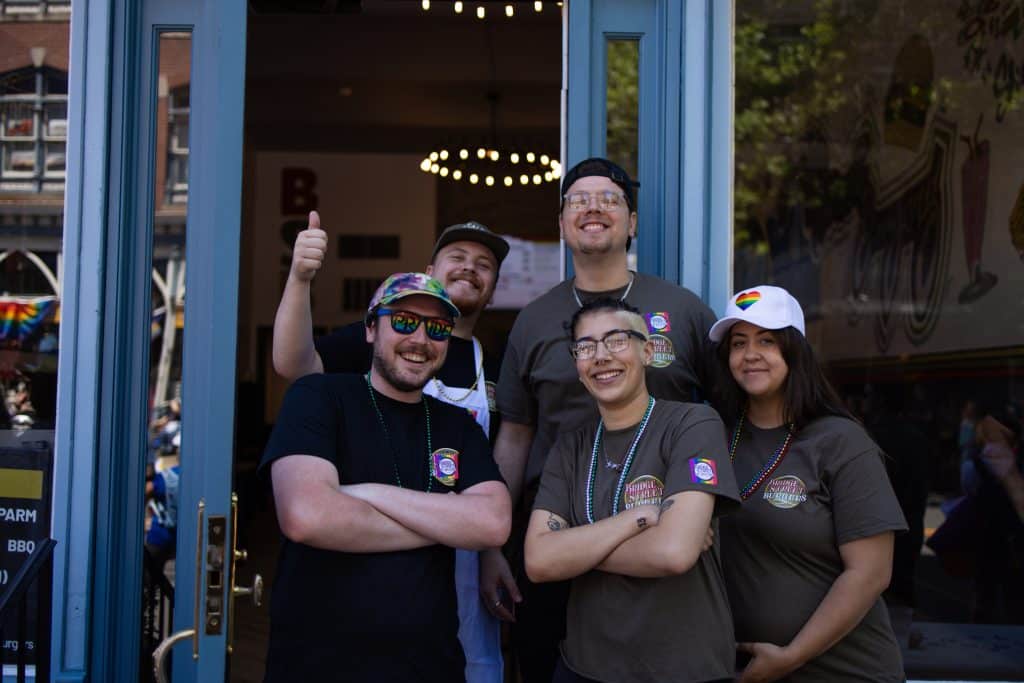
Attendee Cayley Plutnick said Pride in 2025 means resistance. More specifically, to her it means resisting an increasing number of people who want to eliminate LGBTQ+ protections. Living in Lambertville, she is surrounded by many queer friends who fight on a daily basis for their identity, even with their families.
“They’re fighting to be like, this is me. Do you see me? I’m here,” Plutnick said. “To constantly be told that’s not who you are, that can drive someone insane. And it’s not fair. You have one life, and to be told you’re not who you are? I don’t know about that.”
